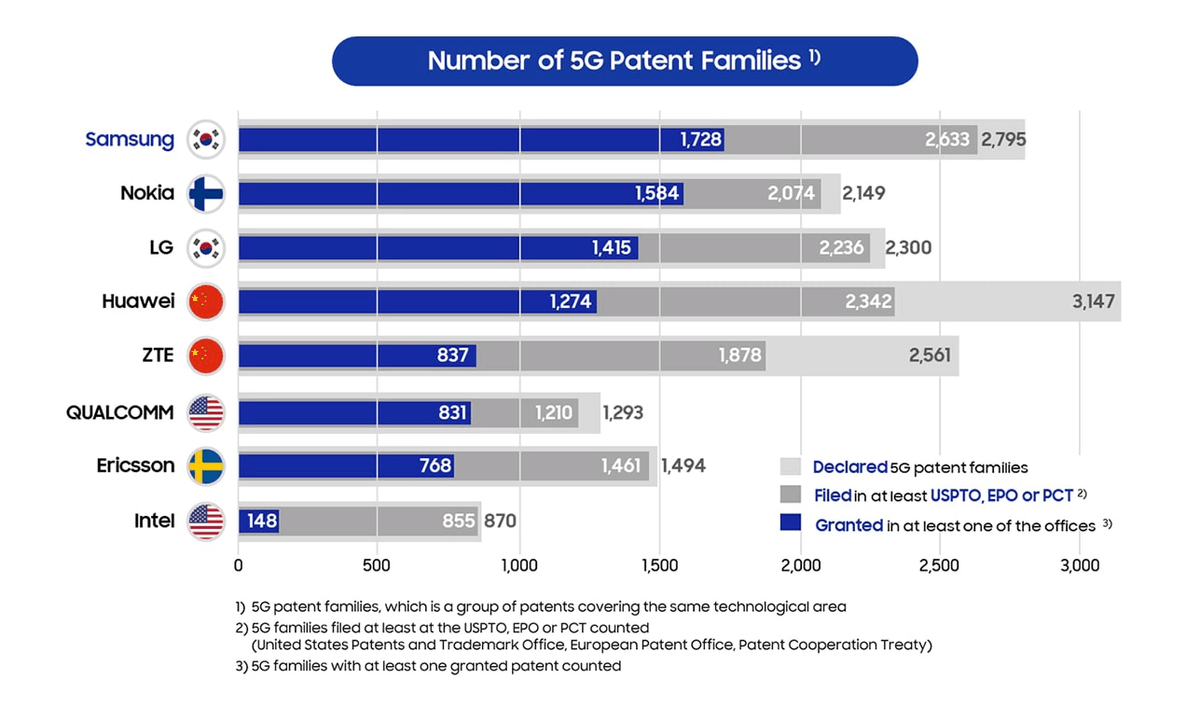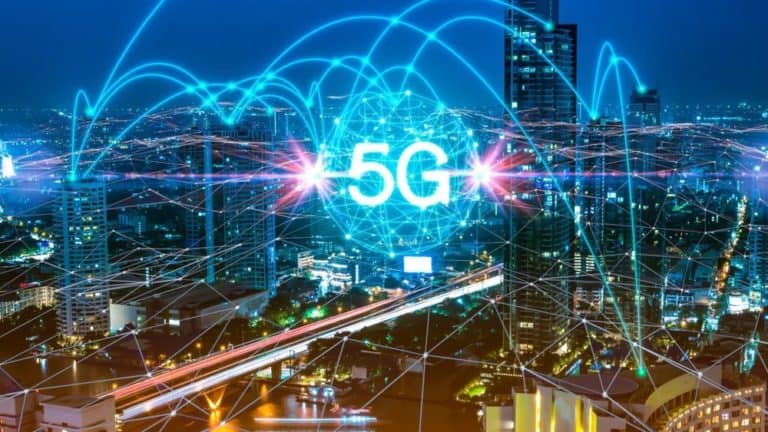Samsung has the highest number of patents granted for 5G. This is concluded by a German study.
The South Korean tech giant has the highest number of 5G-related granted patents with 1728. These results are from a joint study carried out in January by the Technical University of Berlin and the research bureau for intellectual property Iplytics. The patents must have been granted by at least one of the offices in the United States, Europe, or the Patent Cooperation Treaty (PCT) to be included in the study. The study was commissioned by the German Ministry of Economic Affairs and Energy.
According to the study, Samsung’s granted patents are all enforceable. This means they are officially recognised for their exclusive right. In terms of granted 5G patents, Nokia ranks second with 1584 patents, followed by LG with 1415 patents, and Huawei ranks fourth with 1274 patents. Huawei has submitted the most patents with 3147, but this does not mean that each patent is actually granted to the Chinese telecom company.

Samsung is crushing the 5G-race
Samsung has achieved a strong position in the 5G market in recent months. Last week, the company announced that they were going to collaborate with Xilinx to supply new chips for Samsung’s 5G networks. Xilinx uses Versal Adaptive Computer Acceleration Platform chips; these Versal ACAP chips offer a universal, flexible and scalable platform that can meet the requirements of multiple operators in multiple regions. Samsung expects the partnership with Xilinx to be the beginning of a ‘new 5G-era’.
Breaking the 5G speed record
Samsung also managed to break the 5G speed record. The company connected two devices at the same time to obtain a downlink of 3.4 Gbps via 5G. Samsung reached the record-breaking speed by using the 5G New Radio Access Unit, a transmitter mast made for mmWave-5G that Samsung announced last year. The new technology enabled them to achieve a combined peak speed of 8.5 Gbps. Ericsson held the previous speed record. The company reached a speed of 3.7 Gbps on one device instead of two.
